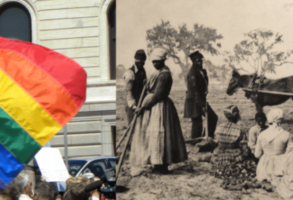
Published September 30, 2021
Big Tech is a problem. That’s one statement that seems to unite liberals and conservatives today. The Wall Street Journal recently published an article that indicated most Americans, regardless of party political loyalties, would like to see the government to do more to curb the power of Apple and the like. From censorship of dissident voices to manipulative algorithmic newsfeeds to invasions of privacy, the issues now seem obvious. The Journal’s findings show that people are particularly concerned about the effect of social media on children. Indeed, we can only contemplate with dread what the internet will do to the rising generation for whom Instagram is central to self-image and for whom sex education takes the form of online pornography.
These concerns are, of course, all legitimate; but they do not address the most fundamental challenge that Big Tech poses: the threat to our basic humanity.
One of the fundamental fallacies concerning technology is that it simply helps us do things faster, more efficiently, with greater precision, and with less personal inconvenience. In short, it allows us to live the same lives, only better. Technology is simply not that straightforward or innocent. It mediates reality to us, and in doing so, it reshapes how we imagine the world and our place within it. It is no surprise that the authority of institutions—from churches to banks and stores—declined in the wake of the internal combustion engine. Now the individual could easily imagine driving to the neighboring town to worship, borrow money, and buy groceries.
I suspect that the automobile revolution will appear relatively trivial compared to the tech revolution we are now living in. The speed of technological change is breathtaking. We do not have time to adapt to one development before another supersedes it. Hence the feeling of vertigo many of us feel as we find our ways of imagining the world to be antiquated even before we have had time to come to terms with their significance.
Click here to read the rest of this piece at WORLD Opinions.
Carl R. Trueman taught on the faculties of the Universities of Nottingham and Aberdeen before moving to the United States in 2001 to teach at Westminster Theological Seminary in Pennsylvania. In 2017-18 he was the William E. Simon Visiting Fellow in Religion and Public Life in the James Madison Program at Princeton University. Since 2018, he has served as a professor at Grove City College. He is also a fellow at the Ethics and Public Policy Center and a contributing editor at First Things. Trueman’s latest book is the bestselling The Rise and Triumph of the Modern Self. He is married with two adult children and is ordained in the Orthodox Presbyterian Church.
Carl R. Trueman is a fellow in EPPC’s Evangelicals in Civic Life Program, where his work focuses on helping civic leaders and policy makers better understand the deep roots of our current cultural malaise. In addition to his scholarship on the intellectual foundations of expressive individualism and the sexual revolution, Trueman is also interested in the origins, rise, and current use of critical theory by progressives. He serves as a professor at Grove City College.










